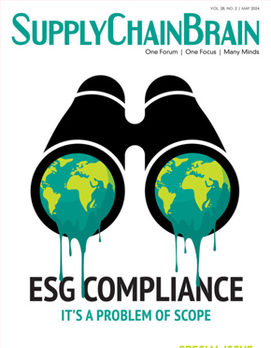
The past two years have introduced unprecedented challenges to the global supply chain. COVID-19 brought manufacturing to a halt in several sectors while consumer demand for certain products skyrocketed, and the supply chain scrambled to catch up. With hundreds of ships anchored off our shores, the industry is still scrambling to get goods where they need to be, and the underlying constraints are showing no signs of letting up.
Shippers should expect continued volatility in the 2022 global supply chain as uncertainty continues to plague the shipping industry. At the same time, shippers will be forced to do more with less during a continued transportation capacity crunch, and transportation teams’ bandwidth will be strained from the hiring challenges facing most industries today.
Meanwhile, consumers have come to expect fast shipping and their service expectations will continue to rise. The pandemic expedited the shift to e-commerce during quarantine more quickly than anticipated. This behavior is here to stay as online shopping continues to rise. With this consumer shopping behavior and high expectations in mind, shippers are facing increased pressure to create seamless supply chains that won’t break under increasing pressure.
Leveraging Data
Supply chain disruptions have the potential to decrease earnings for retailers up to 40% in the near term, according to McKinsey & Co., with 15%-20% of that decrease enduring if supply chain shocks go unaddressed.
Leaders need to learn to do more with less, leveraging data and tools such as machine learning to find empty trucks across the broader transportation network with a need for their freight to reduce empty miles. Not only do data-driven approaches like these save money and time, they dramatically increase reliability, something even the largest shippers have struggled with this past year.
Now that the pandemic has exposed how vulnerable the global supply chain has always been, it's time for business leaders to proactively plan for a more resilient and reliable future. Machine learning can introduce adaptability so that businesses can better navigate through uncertain times ahead. Today the shipping industry operates in silos and leaves excess shipping capacity on the table. The business leaders who recognize this and leverage the new data-based approach to transportation planning will be able to build resilient plans that will ultimately get their products into the hands of customers more reliably.
Better Partnerships
Looking ahead, shippers must understand how they can better plug into the larger global supply chain. In the truckload transportation industry, shippers can align themselves with partners who can help them understand what a truck is doing before and after moving their freight. By looking up and down the chain, shippers can understand how they can better work with their providers to get more reliable and cost-effective service in return.
Industry participants who plug into a larger network can then build adaptable transportation plans that align their needs with the interests of their transportation providers. Does some of your freight work best in your provider’s brokerage division, while other freight belongs in the asset-based part of their business? The best fit might have to do with your shipment patterns, but more likely, how your freight fits with the other freight your provider needs to manage.
Remember that many providers are working with other shippers that have a "win-or-lose" mindset, and may see providers as adversaries. You can become your provider's "shipper of choice" by helping them drive better asset utilization to fill empty miles, and ultimately be a better partner for you.
Examine your shipping data to drive business decisions and see what changes you can make to become a better partner.
A good test to understand the strength of your transportation plans is to measure and see if your savings or improvements in performance are only temporary. If these "gains" are temporary, or don’t translate from paper rates to the bottom line, you probably haven’t gotten to a sustainable solution. Implementing new data-based approaches with advanced machine learning will help you build resilient plans that can withstand a rocky year ahead.
Anshu Prasad is co-founder and CEO of Leaf Logistics.
The past two years have introduced unprecedented challenges to the global supply chain. COVID-19 brought manufacturing to a halt in several sectors while consumer demand for certain products skyrocketed, and the supply chain scrambled to catch up. With hundreds of ships anchored off our shores, the industry is still scrambling to get goods where they need to be, and the underlying constraints are showing no signs of letting up.
Shippers should expect continued volatility in the 2022 global supply chain as uncertainty continues to plague the shipping industry. At the same time, shippers will be forced to do more with less during a continued transportation capacity crunch, and transportation teams’ bandwidth will be strained from the hiring challenges facing most industries today.
Meanwhile, consumers have come to expect fast shipping and their service expectations will continue to rise. The pandemic expedited the shift to e-commerce during quarantine more quickly than anticipated. This behavior is here to stay as online shopping continues to rise. With this consumer shopping behavior and high expectations in mind, shippers are facing increased pressure to create seamless supply chains that won’t break under increasing pressure.
Leveraging Data
Supply chain disruptions have the potential to decrease earnings for retailers up to 40% in the near term, according to McKinsey & Co., with 15%-20% of that decrease enduring if supply chain shocks go unaddressed.
Leaders need to learn to do more with less, leveraging data and tools such as machine learning to find empty trucks across the broader transportation network with a need for their freight to reduce empty miles. Not only do data-driven approaches like these save money and time, they dramatically increase reliability, something even the largest shippers have struggled with this past year.
Now that the pandemic has exposed how vulnerable the global supply chain has always been, it's time for business leaders to proactively plan for a more resilient and reliable future. Machine learning can introduce adaptability so that businesses can better navigate through uncertain times ahead. Today the shipping industry operates in silos and leaves excess shipping capacity on the table. The business leaders who recognize this and leverage the new data-based approach to transportation planning will be able to build resilient plans that will ultimately get their products into the hands of customers more reliably.
Better Partnerships
Looking ahead, shippers must understand how they can better plug into the larger global supply chain. In the truckload transportation industry, shippers can align themselves with partners who can help them understand what a truck is doing before and after moving their freight. By looking up and down the chain, shippers can understand how they can better work with their providers to get more reliable and cost-effective service in return.
Industry participants who plug into a larger network can then build adaptable transportation plans that align their needs with the interests of their transportation providers. Does some of your freight work best in your provider’s brokerage division, while other freight belongs in the asset-based part of their business? The best fit might have to do with your shipment patterns, but more likely, how your freight fits with the other freight your provider needs to manage.
Remember that many providers are working with other shippers that have a "win-or-lose" mindset, and may see providers as adversaries. You can become your provider's "shipper of choice" by helping them drive better asset utilization to fill empty miles, and ultimately be a better partner for you.
Examine your shipping data to drive business decisions and see what changes you can make to become a better partner.
A good test to understand the strength of your transportation plans is to measure and see if your savings or improvements in performance are only temporary. If these "gains" are temporary, or don’t translate from paper rates to the bottom line, you probably haven’t gotten to a sustainable solution. Implementing new data-based approaches with advanced machine learning will help you build resilient plans that can withstand a rocky year ahead.
Anshu Prasad is co-founder and CEO of Leaf Logistics.



.jpg?height=100&t=1715228265&width=150)


